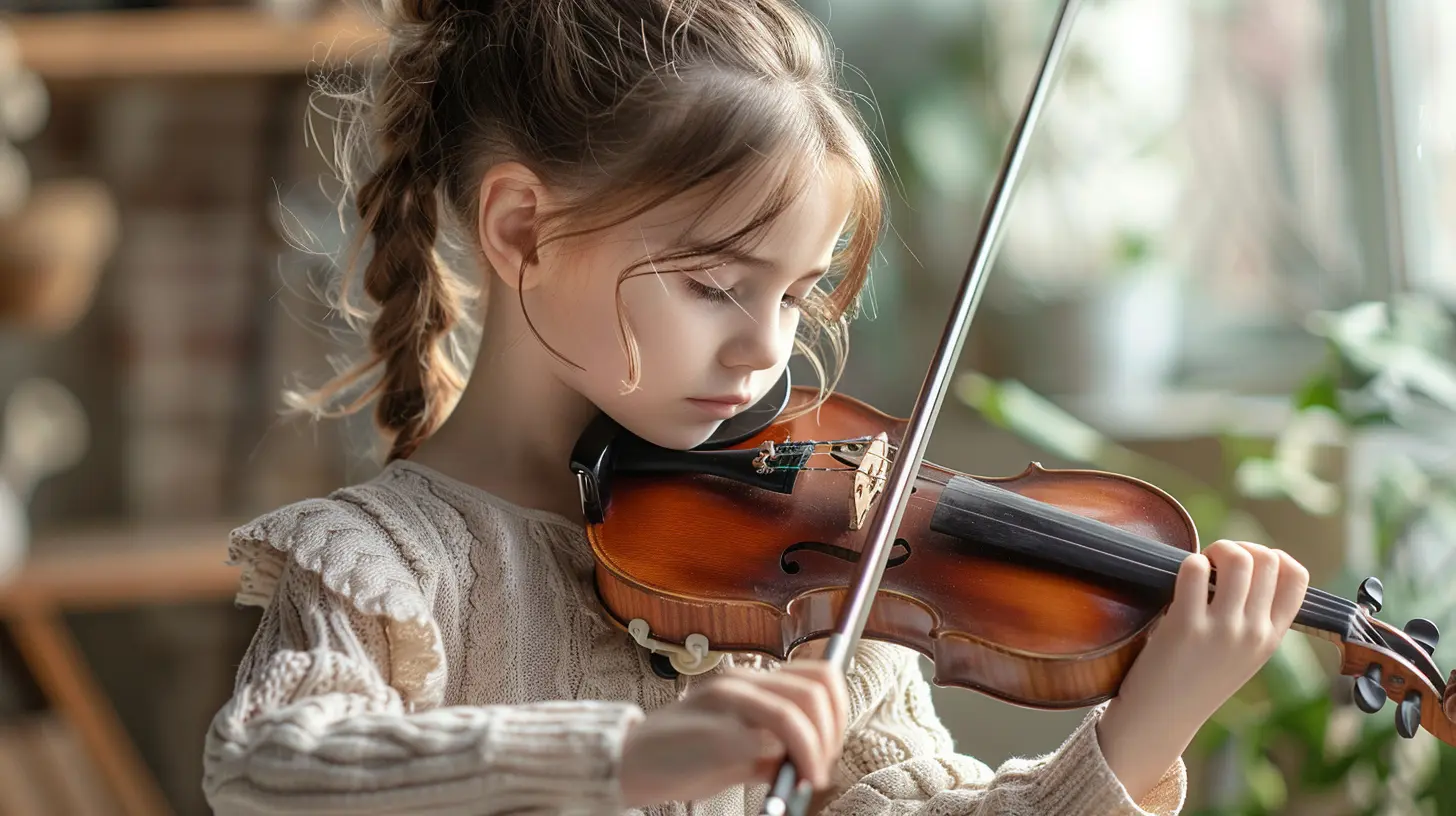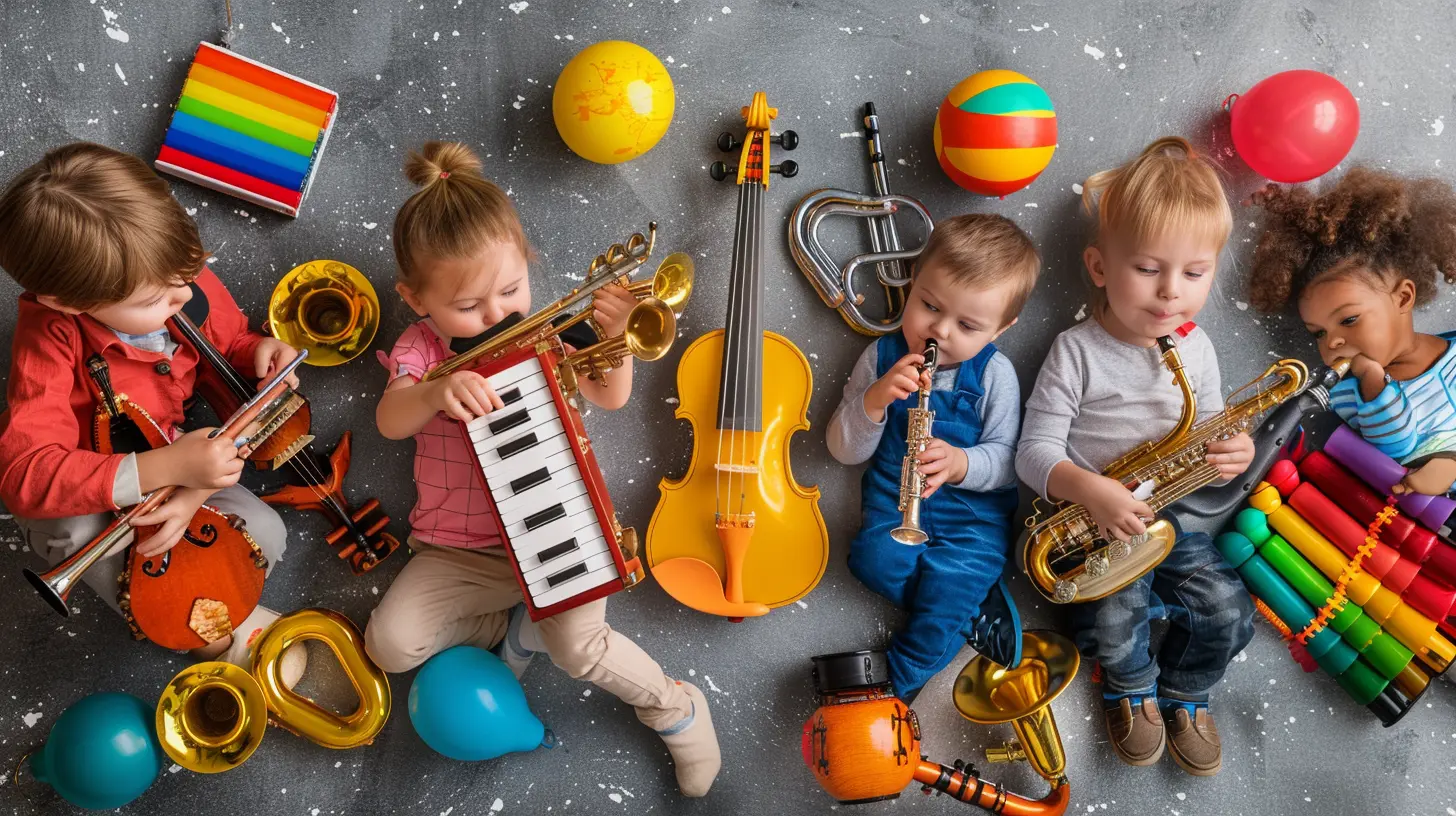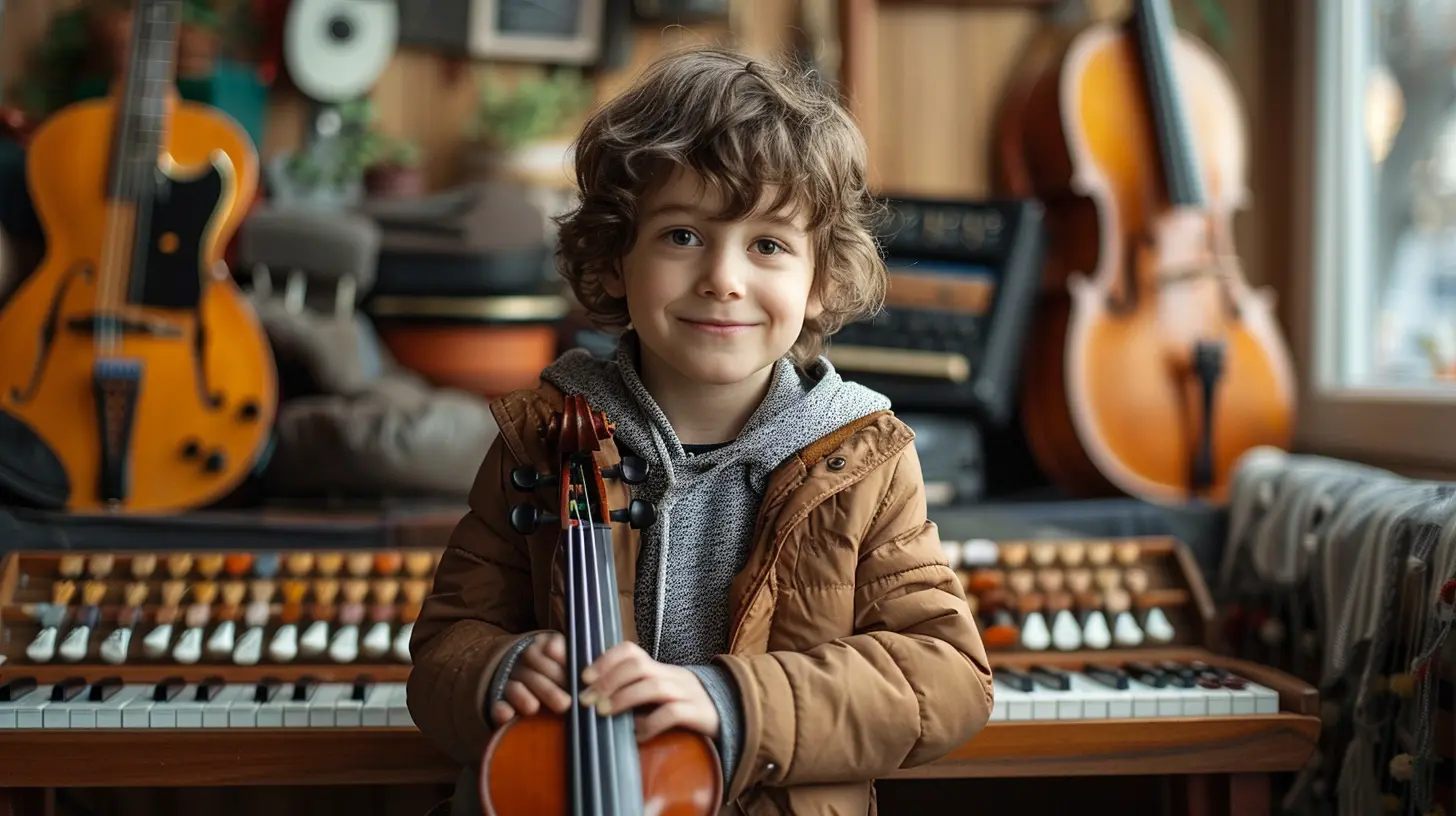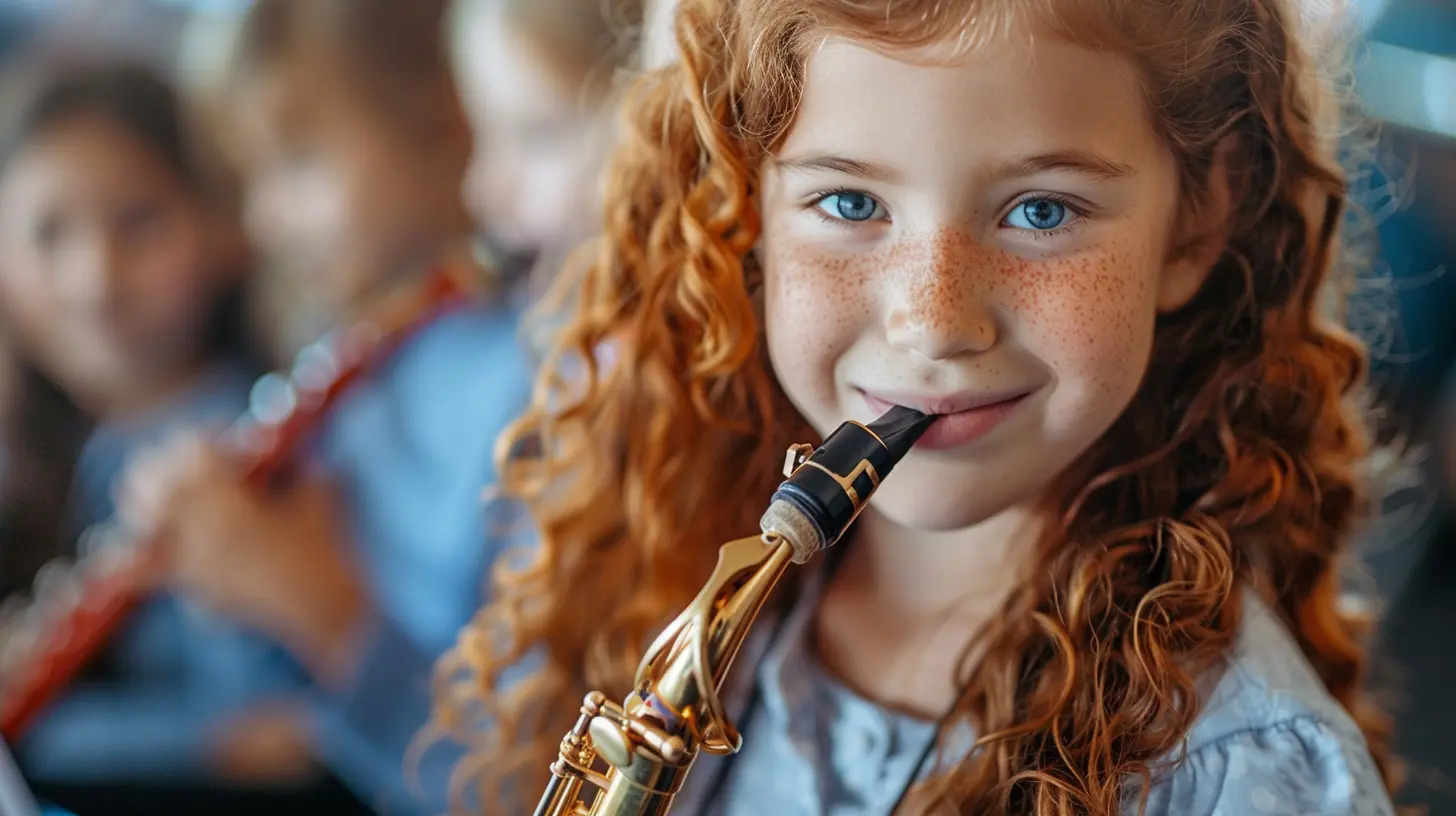How to Choose the Right Instrument for Your Child
9 June 2025
Choosing the right musical instrument for your child can feel like standing in front of an endless buffet—so many options, but which one will satisfy them the most? Music can be a life-changing journey, but starting on the wrong instrument can make kids frustrated rather than excited. So, how do you pick the one that clicks? Let’s break it down step by step.
Why Learning a Musical Instrument Matters
Before we dive into choosing the right instrument, let’s talk about why music education is such a big deal. Learning an instrument isn’t just about playing songs; it teaches discipline, patience, creativity, and even improves cognitive skills. Studies have shown that kids who play instruments often do better in school, especially in math and reading.But here’s the catch: if your child isn’t excited about their instrument, they’re more likely to quit before they truly reap the benefits. That’s why choosing the right instrument is crucial—it should be something they enjoy and feel motivated to play.
Factors to Consider When Choosing an Instrument
Picking the perfect instrument isn't just about what sounds "cool." There are a few factors to consider before making a decision:1. Your Child’s Interest and Personality
Does your child love the sound of the violin, or are they fascinated by the drums? Their interest should be the biggest deciding factor. Kids who love rhythmic beats might enjoy percussion instruments, while those who prefer melodies might gravitate towards the piano or violin.Also, think about their personality. A child who loves being the center of attention might enjoy trumpet or guitar, which are often used in solos. On the other hand, a quieter child might feel more comfortable with the piano, where they can play solo but without the pressure of performing front and center.
2. Physical Considerations
Some instruments require more physical strength, breath control, or hand coordination than others. Here’s what to keep in mind:- Size & Strength: A five-year-old might struggle with a full-sized cello, but a smaller violin or ukulele could be just right.
- Breath Control: Wind instruments like the flute, clarinet, or trumpet require good lung capacity. If your child has asthma or struggles with breathing, this might be a challenge.
- Hand Coordination: Some instruments, like piano or guitar, require both hands to work independently. If your child has difficulty with fine motor skills, simpler instruments like percussion might be better to start with.
3. Budget & Cost of the Instrument
Let’s be real—some instruments are expensive. A piano or harp can cost thousands, while a beginner ukulele or recorder is much more budget-friendly.Also, consider the cost of:
- Lessons: Some instruments require professional instruction, which adds to the expense.
- Maintenance: String instruments need tuning and occasional repairs; brass instruments need regular cleaning.
- Accessories: Will you need a stand, case, extra strings, or reeds? These hidden costs add up over time.
If you’re unsure about committing, many music schools offer rental programs, allowing kids to try an instrument before making a big purchase.
4. Space and Noise Level
Where is your child going to practice? A drum set in a small apartment might drive you (and your neighbors) insane. A tuba or a cello takes up significant space. Think about how loud the instrument is and whether your home environment can handle it.For noise-sensitive spaces, digital pianos or electronic drum kits with headphones might be a good alternative.
5. Future Opportunities
If your child dreams of playing in a marching band or orchestra, some instruments have more opportunities than others. For example:- Concert Bands and Marching Bands: Trumpet, saxophone, clarinet, and percussion are in high demand.
- Orchestras: Violin, viola, cello, and bass have stable opportunities.
- Solo Performances: Guitar, piano, and voice are great for kids who want to play and sing on their own.
While career opportunities may not be a major concern for a young beginner, it’s something to keep in mind if your child wants to pursue music seriously.
Best Instruments for Beginners
If your child is a complete beginner, here are some of the best starter instruments:1. Piano
- Great for learning music theory- Helps develop hand coordination
- Versatile for many music styles
- Can be expensive, but digital keyboards make good alternatives
2. Violin
- Portable and widely used in orchestras- Teaches fine motor skills and ear training
- Requires patience and practice but offers strong musical opportunities
3. Guitar or Ukulele
- Fun and widely used in pop music- Ukulele is smaller and easier for younger kids
- Great for kids who want to sing and accompany themselves
4. Drums or Percussion
- Good for kids with lots of energy- Helps develop rhythm skills
- Can be loud, so electronic drum kits might be a better option for small spaces
5. Recorder or Flute
- Easy to pick up for young children- Affordable and portable
- Good stepping stone to other wind instruments

Encouraging Your Child’s Musical Journey
Once your child picks an instrument, how do you keep them motivated?1. Make It Fun
Learning music doesn’t mean endless hours of boring scales. Let them play songs they enjoy.2. Set Realistic Goals
Aiming to play a simple song rather than mastering Beethoven overnight keeps progress realistic and enjoyable.3. Find the Right Teacher
A great teacher makes all the difference. Some kids do well with strict instructors, while others need a more playful approach.4. Support Without Pressure
Encourage practice, but don’t turn it into a chore. A little praise and occasional rewards can go a long way.Final Thoughts
Choosing the right instrument for your child isn’t about finding the "best" one—it’s about finding the best fit. Their interests, personality, and physical abilities should guide the decision. Whether they end up with a violin under their chin, a guitar in their hands, or drumsticks in the air, what really matters is that they enjoy playing.Music should be a journey, not a struggle. So, let your child explore, listen, and try different instruments—because the right choice is the one that makes them excited to play every day.
all images in this post were generated using AI tools
Category:
Music EducationAuthor:

Eva Barker
Discussion
rate this article
2 comments
Haven Barlow
Great article! Choosing the right instrument for your child can be quite the adventure. It’s all about finding what sparks their interest and makes them excited to play. Can’t wait to see my little one’s musical journey unfold!
June 13, 2025 at 3:59 AM

Eva Barker
Thank you for your kind words! I'm glad you found the article helpful. Exciting times ahead for your little one's musical journey!
Nadia Montgomery
Music makes memories! ❤️
June 10, 2025 at 10:59 AM

Eva Barker
Absolutely! Music is a wonderful way to create lasting memories and enrich your child's life. ❤️


